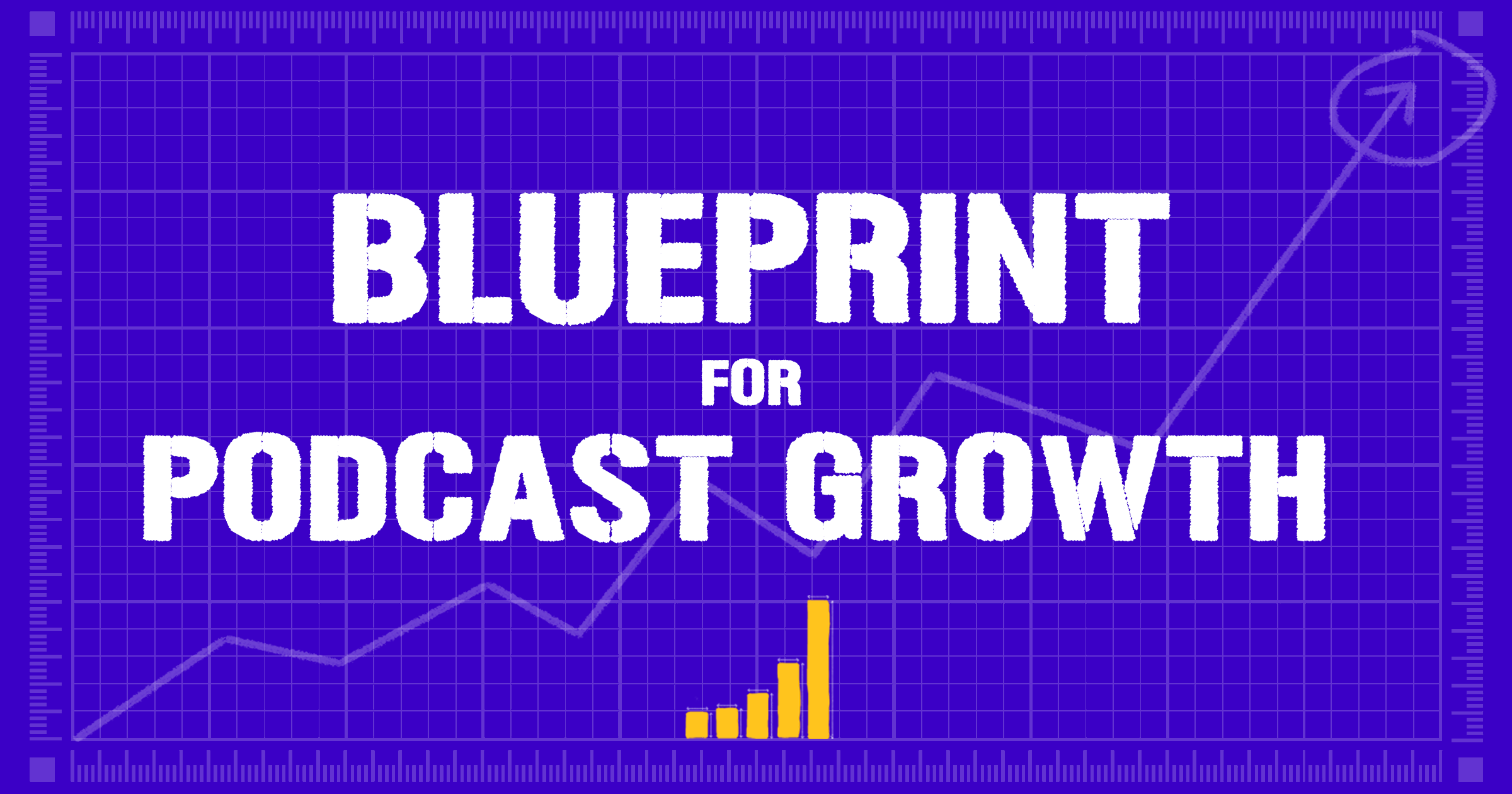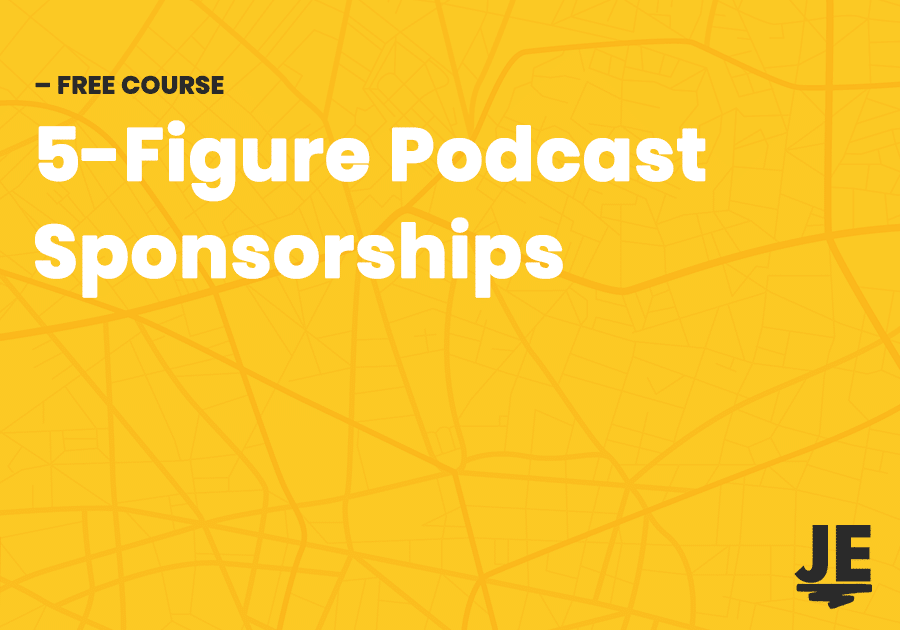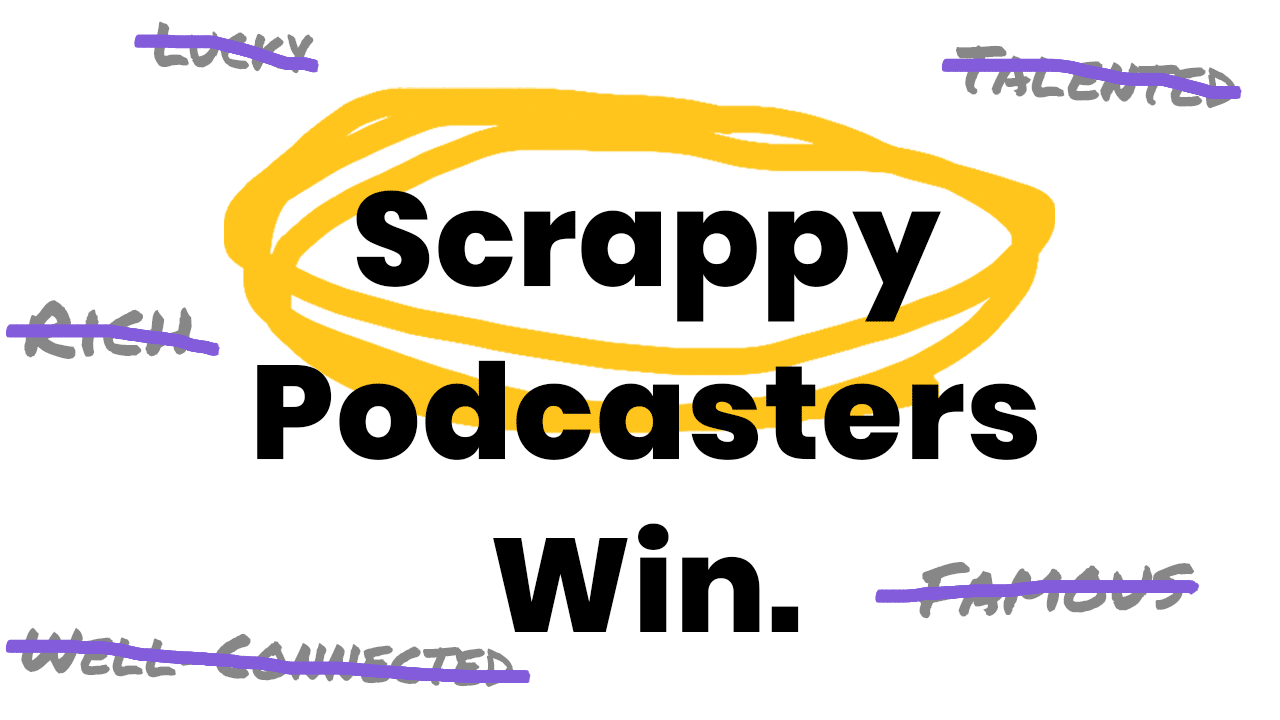So, it’s award season.
You love it, I love it, literally everyone agrees that this is the very best time of year, and the pinnacle of the wide world of entertainment.
Ok, soooo maybe that last statement was a bit of a stretch. But while we’re on the topic of entertainment and Hollywood, let’s talk a bit about what Hollywood has to teach us about how we construct our podcasts.
I: Wait, We’re Getting Podcast Advice From Hollywood Now??
Yeah, ok, so that might have offended some people, sorry. I know the film industry has what seems to be an inexhaustible supply of bad movies close at hand, but they do put out some quality content, right?
* Not to mention the even worse sequels that those already bad movies will spawn…
Regardless of what your thoughts on Hollywood movies are, I’m here to tell you that there is, in fact, a lot that we as podcasters can learn from the film industry, even from some of those aforementioned… shall we say “less than Oscar-worthy” productions.
Oh, and if you want to get your bad movie fix you should probably check out How Did This Get Made? Don’t worry, it’s a podcast about bad movies, not a bad movie itself…
Now, I know that quality is subjective, so for this article, we’re going to use an example (or 9) that we can all get behind as some of the greatest productions in the history of film, and over which there is no division of thought.
Star Wars.
Ah, ah, ah. I don’t want to hear any complaints. I’m writing the article and I say we’re going with Star Wars, so buckle in and let’s see if we can get this done in less than 12 parsecs*.
* Oh, I’ll try to keep the Star Wars puns and references as non-intrusive as possible. I apologize in advance, but yes, we’re doing this now…
As we’ll explore, there is a lot Star Wars can teach us about how to craft better, more engaging podcasts, whether that’s the opening crawl sequence, Luke’s diet on Ahch-To, or Poe’s secret mission to Jakku being foiled to kick off The Force Awakens.
II: Stealing From The Pros: A New Hope
Alright, so despite some of the drivel that Hollywood gives us, there are a ton of insanely talented and creative storytellers in the industry from whom we have a lot to learn (and steal).
If you don’t believe me, read Story: Style, Structure, Substance, and the Principles of Screenwriting by Robert McKee and you’ll have new respect for the people that make movies.
Oh, and keep in mind that everything we’re covering here is applicable to you whether you have an interview, solo, narrative, fiction, musical, or basically any other kind of podcast imaginable. So no excuses.
Let’s get to some of that stealing then shall we?
III: Attack Of The Clones: Podcast Openings
If you’ve listened to any podcasts at all, you’re probably more than familiar with this nifty opening crawl to a show:
Intro Music
-> Brief Intro From Host
-> Question #1: “I’m here today with… can you tell us about who you are and what you do?”
Ok, I get it, your audience wants to know who your guest is right off the bat and what qualifies them to be talking about whatever the topic is.
But you know what? It’s also BORING and it’s the same as 96% of other podcasts out there.
I know, I know. “How the hell else are you supposed to start a podcast?? The people gotta know who the guest is! I can’t put that at the end!!”
You’re right, you can’t, but you’ll be happy to know that there’s another way.
The Star Wars Way*!!!
* And pretty much every other action movie, but we’ve already established we’re going with Star Wars…
Humour me for a moment and let’s go through the opening scenes of each of the Star Wars Movies. Yes all of them.
I: The Phantom Menace: Qui Gon Jinn and Obi Wan Kenobi infiltrate the Trade Federation blockade and pretty quickly end up chopping through a bunch of enemy droids amid heavy gunfire.
II: Attack Of The Clones: Almost immediately, Padmé is nearly killed in an assassination attempt, leading to Anakin and Obi Wan being assigned to guard her. That night another attempt on her life is made leading to a thrilling high flying chase scene.
III: Revenge Of The Sith: Chancellor Palpatine has been “captured” by the Separatist army. Anakin & Obi Wan dogfight their way onto the flagship to rescue him, culminating in a grudge match lightsaber duel.
You know what, we’re just going to stop there. You might have already noticed a trend emerging here, and you were probably already about to close your browser and settle in for a marathon because you want to find out how the movies end.*
*Or you might have been about to close this blog and vow to never visit it again…
Whichever way you were leaning, you can probably notice the trend. None of these movies (or any of the other 6) waste any time getting us into the action. And as viewers, that hooks us immediately, even though we may not know anything about the characters yet.
See, once we’re hooked by a bit of action and the beginnings of a story, we’re more than willing to stick around for some slower character development sections. In fact, once we’re hooked, we’re even more curious to know about the characters around which the action is unfolding.
IV: The Opening Question Strikes Back: Hooking Our Listeners
Alright, so that’s all well and good for movies. But most of us aren’t writing and performing fiction podcasts. We’re doing interviews, or narrative shows, or just talking with our rebel scum mates.
But here’s the thing. We all have stories related to the topics we talk about, or have stories and anecdotes that we can relate to our subject matter, and in fact, we all remember lessons and information when it’s embedded in a story.
So, back to the intro of your podcast. This is what I like to do when kicking off an interview-based show.
Intro Music
-> Brief Intro From Host
-> Question #1: “Ok, so Luke, I want to get into what lead to you living on an island as a hermit in a minute, but first, I’ve got to ask: what’s the most disgusting thing you had to eat to stay alive out there, and what was going through your head at the time?”
-> Luke’s amazing story…
-> Question #2: [mouth agape] “Wow, after that, I’m sure everyone’s wondering ‘who is this guy??’ Do you mind giving our audience a bit of background on who you are and how you ended up as a hermit?”
I always, always, ALWAYS like to start with a question that necessitates the answer be presented as a story, and I want to make sure that story is sensational and hooks the listener in.
Usually I’ll have talked with the guest beforehand and done some research on my own to try and find an angle for the opening question that they might not have been asked before, and for which they don’t have a prepared answer*.
* I bet Luke was preparing to be asked about his dad for the umpteenth time, not about his diet on Ahch-To…
I typically like to come up with a handful of questions for each interview that I think would lead to insightful, informative, or entertaining stories from my guests, and then sprinkle them throughout the episode.
When it comes to solo shows*, I’d make sure I had a similar number of anecdotes, either my own or about other people to keep my listeners engaged and entertained throughout the episode as well.
Whatever type of show you’re doing, always open your episodes with the podcast equivalent of a gunfight scene. Maybe even throw in some lightsabers if you’ve got em.
V: Signposting: The Phantom Menace
Alright, so kicking off an episode with a story is a fantastic way to hook a listener and keep them engaged throughout the episode, but it’s not the only technique that Hollywood uses to capture our attention and hold it for the next 120+ minutes.
For this, let’s jump aaaaaaall the way up to:
VII: The Force Awakens: Poe Dameron’s secret mission to recover a clue leading to Luke’s whereabouts is disrupted by Kylo Ren & First Order troops who kill the local villagers and take Poe captive. His droid narrowly escapes with the clue.
Alright, so we’ve definitely got some action going on here. But what hooks us even more than the action is the intrigue and the questions that this opening scene is hinting at.
Why has Luke Vanished? Where is he? Who are the First Order? These and a dozen other questions all run through our minds after only the first scene.
Creating knowledge gaps like these for our listeners is one of the most effective ways of grabbing and holding attention, and is absolutely something that you can (and should) apply to your very next podcast.
These hints are often referred to as “signposts,” and can be sprinkled throughout your shows, slowly closing one knowledge gap between you and the listener, before opening a new one by hinting at what’s coming next.
If you look at the example I used above, it actually includes a signpost as well as leading Luke immediately into telling us a story.
“…I want to get into what lead to you living on an island as a hermit in a minute, but first, I’ve got to ask…”
There’s the signpost telling the listener that their most burning question is going to be answered, but they’re going to have to stick around and wait for it. Signposts are also commonly used when additional context is needed before getting to the main question.
For example, “To understand x, we first need to explore y.” In this way, we can tease the listener and lead them to the doorstep of answering their question before pulling back temporarily to (hopefully) provide context and information, as well as tension that will make the revelation that much better when we do fulfill it.
In the example of Luke, my second question included the prompt to answer that knowledge gap, but I might also choose to not ask about the topic until halfway, or even further into the interview. Delaying the resolution builds tension throughout the episode for the listener, who has been promised an answer and is now dying to find out the story.
You can do this in any type of podcast, whatever your topic is. The key is knowing, before you do the interview what your audience’s most burning question on the topic or for your guest is.
Of course, this takes some preplanning and intention around the way you craft your episodes. But this is a technique that can dramatically improve your interviews, and is something that separates the masters from the rest of us.
I challenge you to actually put in the effort for type of planning for just one episode. Make a roadmap of where you want the conversation to flow, where you want to place your signposts, and the questions you’ll ask to pull stories out of your guests and where you’ll place them.
Once you’ve recorded that episode, make an honest assessment of that episode and compare it to your past shows. Also, let me know, I wanna hear it!
VI: A Long Time Ago In A Galaxy Far, Far Away….: The Opening Crawl
Now, I know that depending on who you are, the opening crawl sequence before each of the main Star Wars movies might other seem either incredibly cheesy, or essential to the plot – not to mention getting you squirming in your seat with excitement*.
* I assure you, I most definitely fall into the latter category
On the one hand, it seems like a bit of a cop-out. A deus ex machina of sorts that allows the director to find a way around sticky plot holes without actually telling us how they were filled.
I, however, think it’s a brilliant way to tell the story they want to tell, and provide just enough of a backstory so that the audience is on the same page as the characters, and allow the story to unfold from there.
It also strikes me as being very similar in nature to the descriptions we write for our podcast episodes that appear on our websites, as well as virtually every podcatcher out there.
VII: Being Intentional With Our Podcast Descriptions & Intros
Far too often, I think we view our descriptions as nothing but one of the small annoying tasks that must be completed before publishing our episodes. Maybe we but in a brief sentence about who the guest is, or maybe we provide a basic rundown of everything that’s covered in the episode.
When we do this, however, we’re ignoring the fact that our show descriptions are a fantastic tool to both hook our listeners and get them interested in the show, while also giving them enough context and backstory so that we can jump into the real content without wasting time on guest introductions and irrelevant history.
We want to tease the content enough that anyone who reads the description knows what they’ll take away from the episode, but also frame it in a way that creates a feeling of mystery, a knowledge gap that requires them to actually listen to the episode in order to have their questions answered.
Aside from the written description, I think your opening intro segment recorded separately from the interview can be a fantastic way to both intrigue listeners as well as inform and provide context.
In fact, I’m a big fan of doing the entire introduction of the guest in 30-60 seconds in my intro and then get right into the juicy material once the interview starts, and allowing their character to be developed organically throughout the duration of our conversation.
I think that overall, intros are best kept brief (2-3 minutes tops!), but can save a lot of time by establishing the context for the discussion, provide some backstory on the guest or topic, and begin establishing some signposts early on.
VIII: The Last Heading*
* Wow, that worked out really nicely…
Ok, so I could probably go on until the end of time dissecting Star Wars and applying its various lessons to podcasting, especially now that thanks to Disney, I’ll have a steady stream of movies to consume for the foreseeable future!
But I won’t subject you to that.
I will say that if you’re a nerd like me and want to dig waaaay deeper into the art of audio storytelling, you should go check out the wealth of resources that NPR has put together and made freely available.
If you’re looking for ways to add more elements of story to your episodes, I’ve created a cheat sheet of story-prompting questions that you can start using in your next episode!
I’d love to hear about how you think about hooking your listeners and keep them engaged throughout your episodes. Or if this is all new to you, let me know what you’re going to start employing! Leave me a comment yo!
- Why Wouldn’t They Just Google It? - March 14, 2021
- Before You Can Market Your Podcast, You Need To Create A Marketable Podcast - March 11, 2021
- Podcast Promotion & Marketing Are Different (Here’s How to Use Each Effectively) - March 10, 2021




